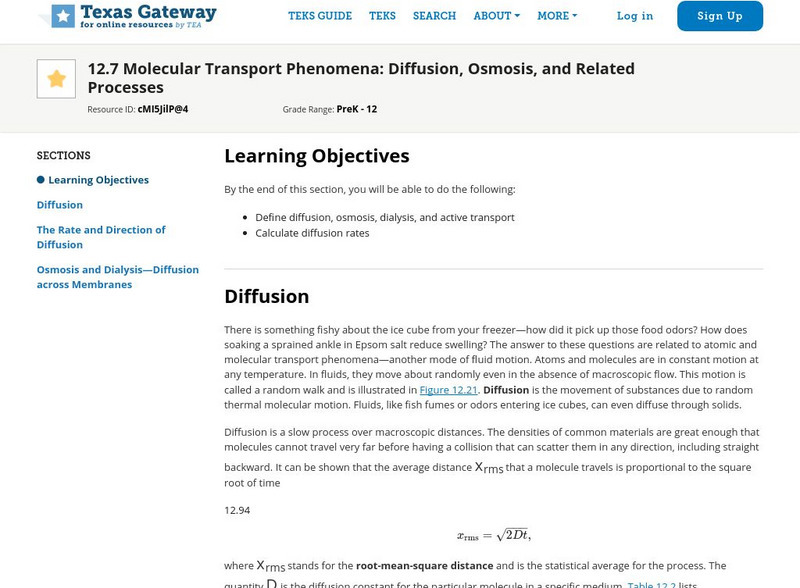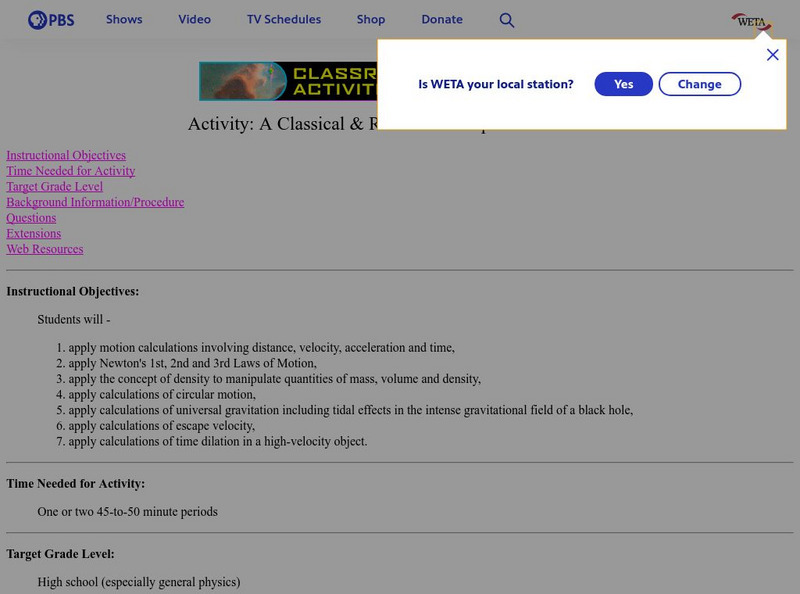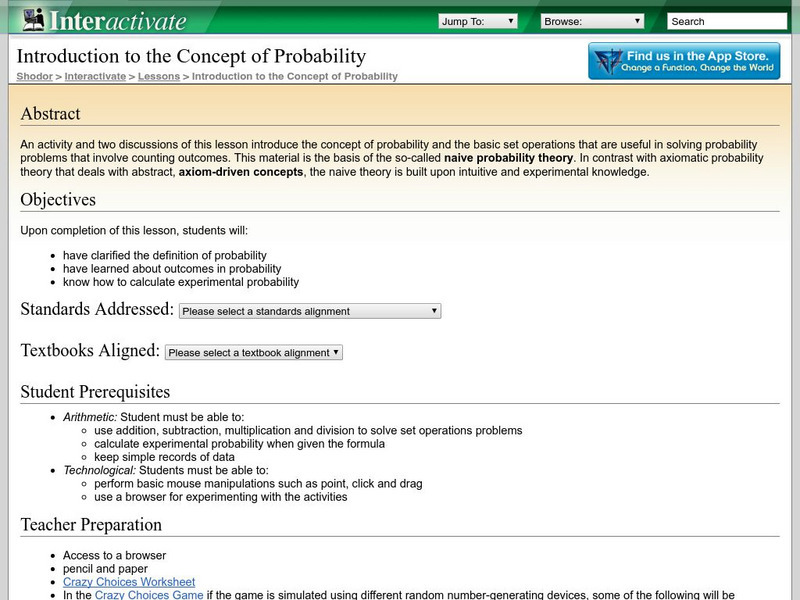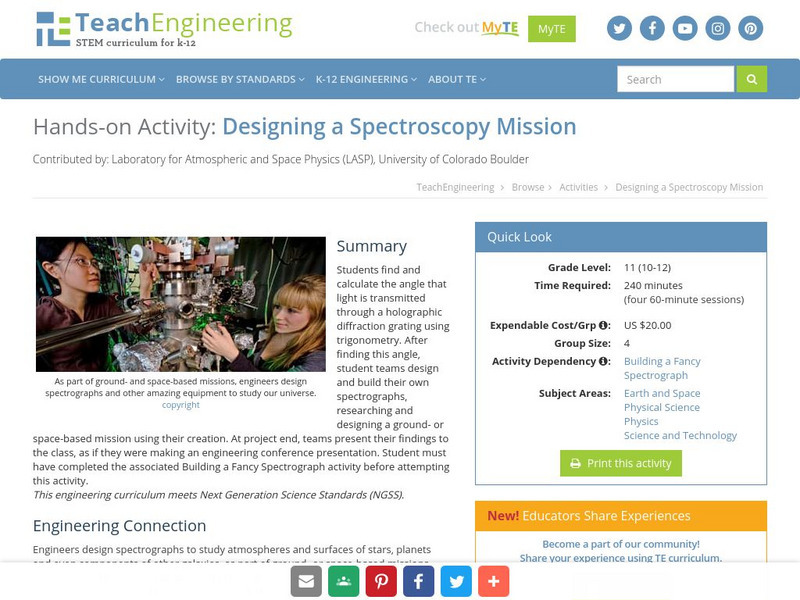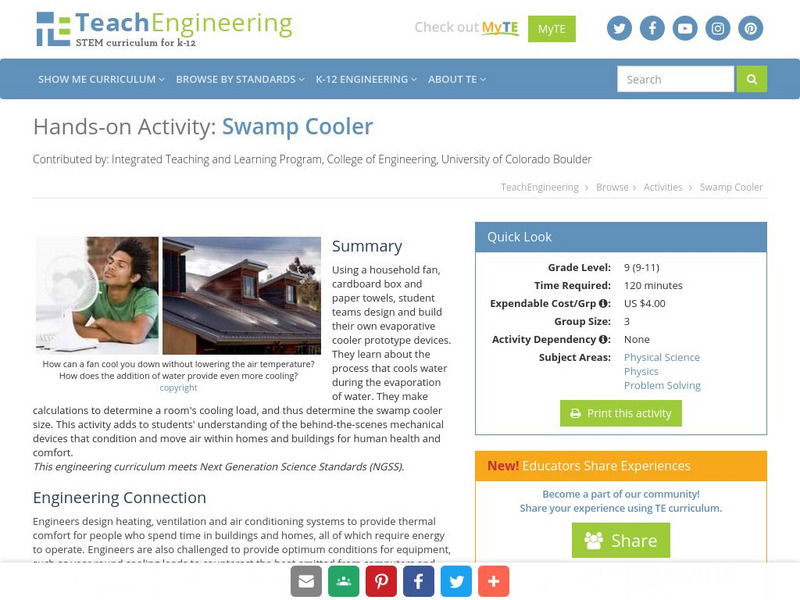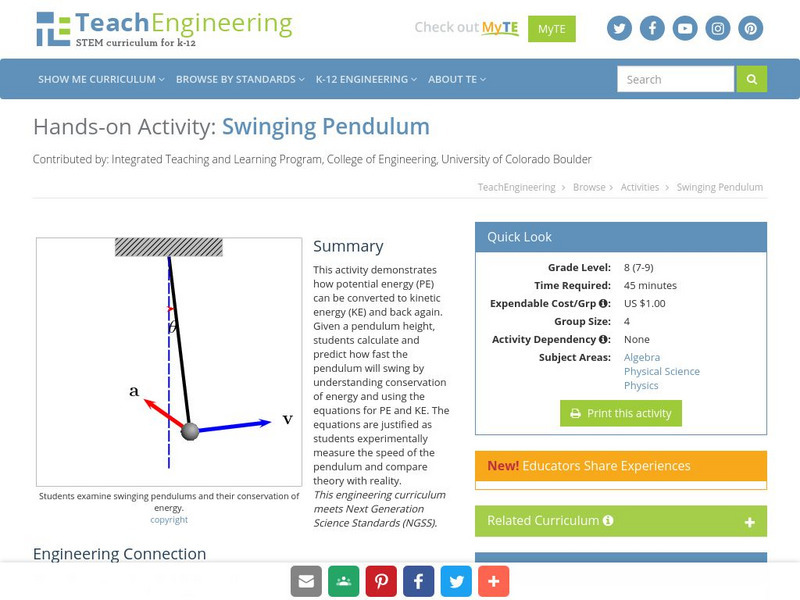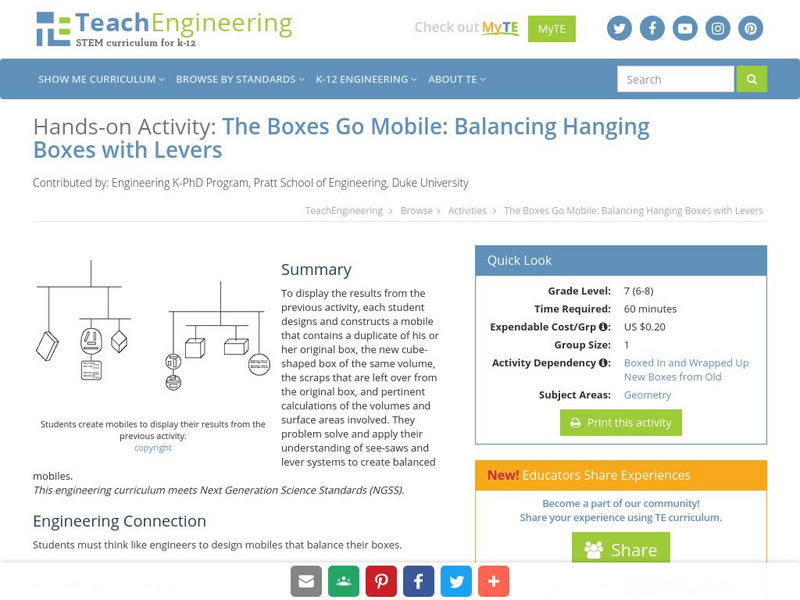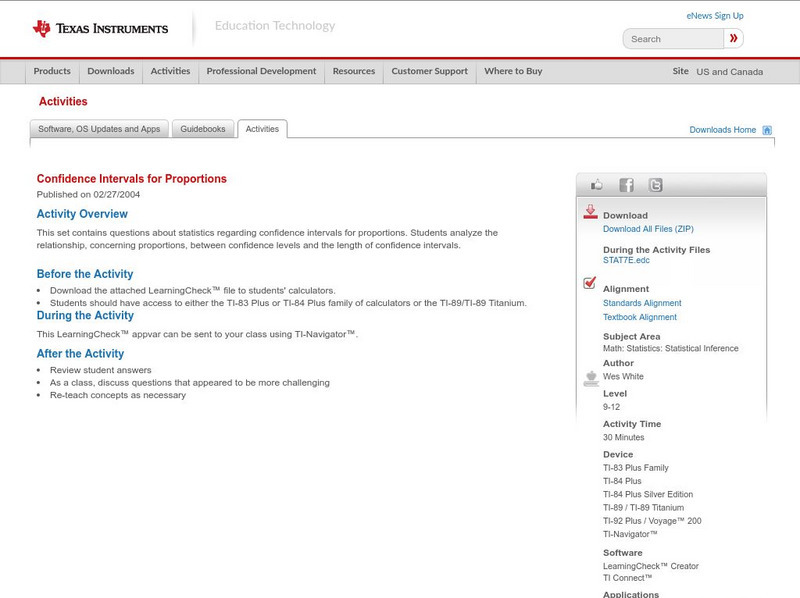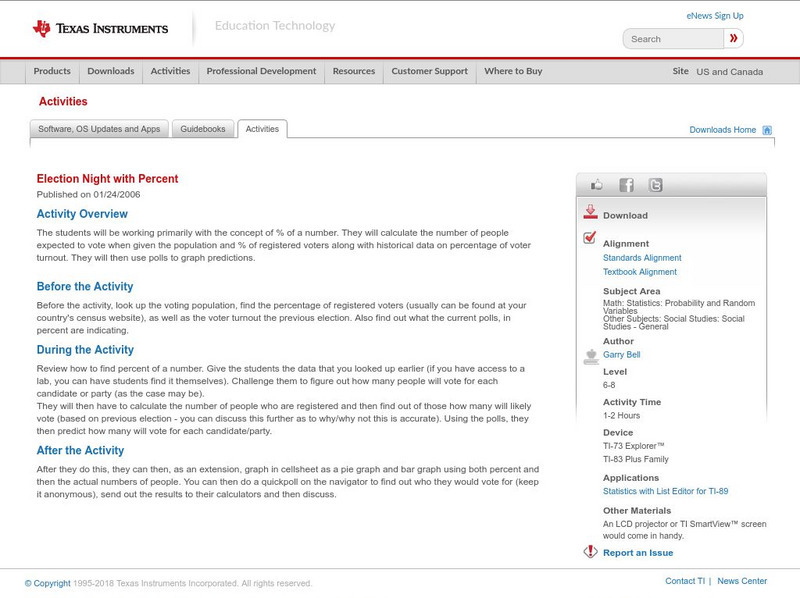City University of New York
Brooklyn College: Osmosis Interactive Activity
Great activity with clear background information. Try out the lab using osmosis to calculate molecular weight.
Oswego City School District
Regents Exam Prep Center: Regression Analysis
A collection of lesson ideas, a practice activity, and teacher resources for exploring regression analysis.
Texas Instruments
Texas Instruments: Numb3 Rs: Exponential Growth
Based off of the hit television show NUMB3RS, this lesson introduces students to the concept of exponential growth, especially in comparison to linear growth. This is done in the context of weekly allowances, in which one group earns a...
OpenStax
Open Stax: Physics: Molecular Transport Phenomena
Learn about diffusion, osmosis, dialysis, and active transport in this college textbook. Section also includes how to calculate the rate of diffusion. Section includes problems and questions for the students to answer to ensure...
Texas Education Agency
Texas Gateway: Molecular Transport Phenomena: Diffusion, Osmosis, & Related Proc
By the end of this section, you will be able to define diffusion, osmosis, dialysis, and active transport and to calculate diffusion rates.
PBS
Pbs: A Classical and Relativistic Trip to a Black Hole
This PBS site is a classroom activity that takes a trip to a black hole. Students apply calculations on distance, velocity, acceleration, time, circular motion, density, and more.
Shodor Education Foundation
Shodor Interactivate: Lesson: Intro to the Concept of Probability
The Shodor Education Foundation provides this lesson plan to introduce students to the concepts of probability. Students learn about the definition of, outcomes in, and calculations of experimental probability. Students use an...
Utah Education Network
Uen: Ordering and Computing With Negative Fractions and Decimals
This lesson plan allows students to practice comparing and ordering rational numbers on a number line as well as computing with fractions and decimals. It provides an assessment plan and attachments for the lesson's activities.
TeachEngineering
Teach Engineering: Designing a Spectroscopy Mission
Students find and calculate the angle that light is transmitted through a holographic diffraction grating using trigonometry. After finding this angle, student teams design and build their own spectrographs, researching and designing a...
TeachEngineering
Teach Engineering: Swamp Cooler
Using a household fan, cardboard box and paper towels, student teams design and build an evaporative cooler (swamp cooler). They learn about the process that cools water during the evaporation of water. They make calculations to...
TeachEngineering
Teach Engineering: Shallow & Deep Foundations
Students investigate the critical nature of foundations as they learn differences between shallow and deep foundations, including the concepts of bearing pressure and settlement. Using models representing a shallow foundation and a deep...
TeachEngineering
Teach Engineering: Solar Water Heater
Student teams design and build solar water heating devices that mimic those used in residences to capture energy in the form of solar radiation and convert it to thermal energy. This thermal energy is next transferred to water (to be...
TeachEngineering
Teach Engineering: Engineering Your Own Spectrograph
Students use simple materials to design an open spectrograph so they can calculate the angle light is bent when it passes through a holographic diffraction grating. A holographic diffraction grating acts like a prism, showing the visual...
Shodor Education Foundation
Shodor Interactivate: Triangle Explorer
This applet allows users to study the nature of triangles and their area. It draws random triangles on a Cartesian coordinate system. The user can determine the area of the triangle using his or her preferred method. After the calculated...
Texas Instruments
Texas Instruments: Discovering Ohm's Law
In this activity, students use voltage and current probes to investigate Ohm's Law. The students collect data and use their graphing calculators to perform data analysis and "discover" Ohm's Law.
Science Education Resource Center at Carleton College
Serc: Using Macroscale Measurements to Determine Microscale Quantities
In this guided inquiry activity, students will see how we can obtain information about the atomic world by making macro-scale calculations. Students will also use dimensional analysis to manipulate their measurements to achieve the...
TeachEngineering
Teach Engineering: Swinging Pendulum
This activity demonstrates how potential energy (PE) can be converted to kinetic energy (KE) and back again. Given a pendulum height, students calculate and predict how fast the pendulum will swing by understanding conservation of energy...
TeachEngineering
Teach Engineering: The Boxes Go Mobile
To display the results from the previous activity, each student designs and constructs a mobile that contains a duplicate of his or her original box, the new cube-shaped box of the same volume, the scraps that are left over from the...
Shodor Education Foundation
Shodor Interactivate: Function Revolution
This activity allows the user to find the volume and surface area of various functions as they are rotated around axes. This applet can be used to practice finding integrals using the disk and washer methods of calculating volume.
Texas Instruments
Texas Instruments: Confidence Intervals for Proportions
The student will use the TI-83 Plus/TI-84 Plus to calculate confidence intervals for proportions.
Texas Instruments
Texas Instruments: Election Night With Percent
The students will be working primarily with the concept of % of a number. They will calculate the number of people expected to vote when given the population and % of registered voters along with historical data on percentage of voter...
Consumer Financial Protection Bureau
Consumer Financial Protection Bureau: Saving for Post Secondary Education
Students use an online compound interest calculator to answer questions and create charts that show the value of saving money over time for future education goals.
Shodor Education Foundation
Shodor Interactivate: Tables and Chairs
Explore perimeter through rectangular and straight-line arrangements of tables, calculating the number of chairs needed to surround different arrangements.
Shodor Education Foundation
Shodor Interactivate: Box Plot
Students can create box plots for either built-in or user-specified data as well as experiment with outliers. User may choose to use or not use the median for calculation of interquartile range.




